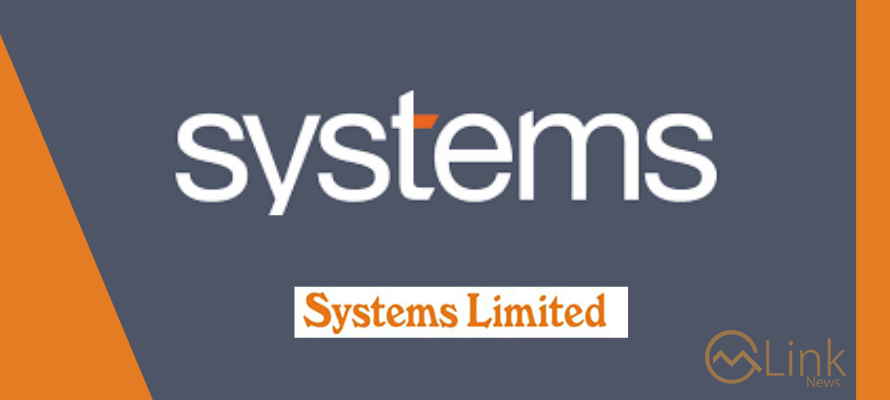March 29, 2021 (MLN): The Federal Board of Revenue (FBR) on Friday stated procedures for industrial units operating in tribal areas to control the movement of tax-exempt goods from non-tariff areas to taxable areas of Pakistan and avail exemption of withholding tax on the import of Industrial Inputs/Machinery by investors of erstwhile Federally Administered Tribal Areas (FATA) and Provincially Administered Tribal Areas (PATA).
The FBR, in this regard, issued two circulars, first states the procedure for Issuance of Consumption Certificate for industrial inputs by FATA/PATA-domiciled industries, while the second circular revealed the procedure for issuance of Exemption Certificate for import of Industrial inputs/machinery by FATA/PATA-resident tax persons.
According to FBR’s circular no.05 of 2021, the industrial units in erstwhile Federally Administered Tribal Areas (FATA) and the Provincially Administered Tribal Areas (PATA) would now be required to submit the “consumption certificates” to the Federal Board of Revenue (FBR) to ensure that the tax-exempt goods are ultimately consumed within the tribal areas.
“In order to earnestly implement and enforce the tax-related incentives and benefits extended by the parliament to residents of the FATA/PATA, Circular No 9 of 2021 dated March 1, 2021, was issued. The circular takes account of the safe arrival of industrial inputs imported by FATA/PATA domiciled industries from the port to the intended manufacturing sites. Section 13(1) read with Serial No. 151 of Table I of Sixth Schedule to the Sales Tax Act, 1990, exempts import of “industrial inputs” to FATA/PATA-located industries “on presentation of a post-dated cheque for the amount of sales tax payable and the same shall be returned to the importer after the presentation of a consumption…certificate…in respect of goods imported as issued by the Commissioner Inland Revenue having jurisdiction.” Circular cited
This particular benefit is subject to a further condition that if the goods produced from the exempted raw materials are transferred or supplied outside the tribal areas, the tax exempted shall be paid at the applicable rate, FBR said.
This makes “consumption certificates” issued by Commissioner Inland Revenue (CIR) the centerpiece of the tax-exempt cycle of importation of industrial inputs, production of finished goods by FATA/PATA-domiciled industries and their, ultimate consumption within the FATA/PATA regions. It is therefore that a standardized procedure for the issuance of Consumption Certificate is being rolled out so as to ensure fair operationalization of the exemptions enshrined in the law.
It is therefore that a standardized procedure for the issuance of Consumption Certificate is being rolled out, so as to ensure fair operationalization of the exemptions enshrined in the law.
The FATA/PATA-based manufacturer/Registered Person (RP), who is also an “active taxpayer” in terms of Section 2(1) of the Sales Tax Act, 1990 (“the STA, 1990”), and intending to import raw materials for consumption at his own manufacturing site would make a written application to the CIR concerned providing production capacity of the manufacturing unit, and if the same has increased over time, the month from which the enhanced production capacity was installed along with particulars of the additional manufacturing capacity.
They would be required to provide a month-wise quantity of raw material imported and purchased locally since July 2020 (or 1st month of the tax year); quantity of stock available from earlier imports; month-wise details of gas and electricity consumed since July 2020 (or 1st month of the tax year); month-wise particulars of goods produced; month-wise details of post-dated cheques (PDCs) deposited with Customs authorities, if any; list of buyers of the goods produced; bank statement for the relevant periods; electricity and gas bills for the relevant period; month-wise proof of Federal Excise paid only in case of goods covered under the Federal Excise Act, 2005.
The CIR would ensure that particulars supplied by the RP are verified before the issuance of the Consumption Certificate. In case any data are not verified, the RP would be given an opportunity to complete the application, provide the required information, and make up for the deficiency.
The Consumption Certificate issued will be directly mailed to the Collector Customs concerned with a copy thereof being duly marked to Member (IR Operations) and Member (Customs Operations), and under no circumstances will be handed over to the taxpayer. If the CIR decides to reject the application for a Consumption Certificate, the previous PDCs deposited would be encashed, FBR added.
In its second circular, the FBR has issued a procedure for the Issuance of Exemption Certificate for Import of Industrial Inputs/Machinery by FATA/PATA-Resident Tax Persons.
According to circular no.13 of 2021, in pursuance of the amalgamation of FATA/PATA regions via 25th Amendment to the Constitution, in order to boost economic development therein, the government, vide Clause (146) of Part I of 2nd Schedule to the Income Tax Ordinance, 2001, exempted income of any individual domiciled or company and association of persons resident in the Tribal Areas forming part of the provinces of Khyber Pakhtunkhwa and Balochistan with effect from June 1, 2018, to June 30, 2023. The provisions of sections in Division III of Part V of Chapter X and Chapter XII” of the Ordinance 2001, pertaining to withholding taxes have also been rendered inapplicable to FATA/PATA-domiciled tax persons vide Clause (110) of Part IV of 2nd Schedule to the Ordinance.
A standardized procedure for the issuance of “Exemption Certificate” on a quarterly basis is being rolled out so as to ensure fair operationalization of the exemptions enshrined in the law. Accordingly, a FATA/PATA-domiciled person appearing on the Active Taxpayers List instituted by FBR in terms of section 181A of the Ordinance 2001 and intending to import “plant, machinery, equipment” or “industrial inputs” for installation or consumption at his own manufacturing site would lodge a written application to the Commissioner Inland Revenue (CIR) concerned providing production capacity of the manufacturing unit, and if the same has increased over time, the month from which the enhanced production capacity was installed along with particulars of the additional manufacturing capacity.
The imports would also provide a month-wise quantity of raw material imported and purchased locally; quantity of stock available from earlier imports; month-wise details of gas/electricity consumed since July, 2020; month-wise particulars of goods produced; month-wise details of post-dated cheques (PDCs) deposited earlier with Customs authorities, if any; list of buyers of the goods produced; bank statement for the past quarter; electricity/gas bills for the past quarter and month-wise proof of Federal Excise paid only in case of goods covered under the Federal Excise Act, 2005.
The CIR would ensure that particulars supplied by the taxpayer are verified before the issuance of Exemption Certificate. In case any data are not verified, the taxpayer would be given an opportunity to complete the application, provide the required information, and make up the deficiency. The Exemption Certificate issued will be directly mailed to the Collector Customs concerned with a copy thereof being duly marked to Member (IR Operations) and Member (Customs Operations), and under no circumstances will be handed over to the taxpayer. If the CIR decides to reject the application for an Exemption Certificate, the previous PDCs deposited would be encashed, the FBR added.
Copyright Mettis Link News
40414







